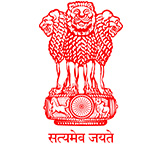Guidance Note on “Compliance audit of SPVs and Trusts/Societies implementing beneficiary oriented schemes”
Reference No: 726 /16-PPG/2016 Dated: August 24, 2016
The Government of India has, over time, introduced a large number of beneficiary oriented schemes as Centrally Sponsored Schemes (CSS) to achieve envisaged goals and objectives. These schemes are designed by the Government of India to be implemented in the States and the last mile is executed by implementing agencies, which are established as SPVs and Societies/Trusts etc. These implementing agencies along with the organisational hierarchies of the government implement policy and deal with public money and thus collectively comprise our audit universe.
At present, most of these SPVs and Trusts/Societies are generally being covered in audit only on a periodic basis when performance audits are conducted. As substantial public moneys flow through these SPVs and Trusts/Societies implementing beneficiary oriented schemes, their audit needs to be strengthened so as to effectively assess their compliance pertaining to the end use of money originating from the Consolidated Funds of the Union and the States. The objective of this guidance note is, therefore, to mainstream the planning and conduct of compliance audits of these SPVs and Trusts/Societies on a regular basis.
Salient features of the Compliance Auditing Guidelines
The Department has adopted the Compliance Auditing Guidelines envisaging a risk based approach to compliance audit, which requires preparation of annual compliance audit plans by:
a) defining the Apex Auditable Entities and Audit Units and distinguishing them from the Implementing Units and
b) risk profiling for their risk based selection for compliance audits.
a) Definition of Apex Auditable Entities, Audit Units and Implementing Units
Extracts from Compliance Auditing Guidelines
The Department/Sector in the State Government or the Central Government being the top layer would be defined as the Apex Auditable Entity.
(Para 3.4)
Audit Unit is defined as a unit, which has one or more of the following attributes:
- a) substantial devolution of administrative and financial powers;
- b) functional autonomy; and
- c) operational significance with reference to achievement of objectives of the Apex Auditable Entity.
(Para 3.5)
The organisational hierarchies and implementing agencies below the Audit Units are categorised as Implementing Units.
(Para 3.6)
The Implementing Units include the last mile service providers and implementing arms of the government. The SPVs and Trusts/Societies implementing beneficiary oriented schemes would therefore, typically qualify as Implementing Units.
The database of audit universe capturing the Apex Auditable Entities, Audit Units and Implementing Units as envisaged in the Compliance Auditing Guidelines would have to be prepared, maintained and updated regularly by the respective field office, which would have to include the SPVs and Trusts/Societies implementing beneficiary oriented schemes. This database would form the basis of planning compliance audits.
b) Risk profiling
Extracts from Compliance Auditing Guidelines
The risk based approach to planning compliance audits is about focussing audit efforts on the perceived high risk areas/activities. Risk profiling of the Apex Auditable Entities and their Audit Units has to be done considering their structures, roles they are expected to perform and compliance requirements.
(Para 3.9)
Field offices are required to consider the Apex Auditable Entity’s environment from a broader perspective to evaluate the high risk areas/activities of the entity.
The Compliance Auditing Guidelines provide the broad dimensions for evaluation of the high risk areas as also the various documents/literature and aspects that should be reviewed for assessment of risk. Based on such a risk assessment the field offices have to prepare the annual compliance audit plan comprising a selection of Apex Auditable Entities and of Audit Units as also an appropriate sample of Implementing Units. The selected sample of Implementing Units would include a selection of SPVs and Trusts/Societies implementing beneficiary oriented schemes as appropriate. The selected sample of Implementing Units would have to be audited as a part of audit of their respective Audit Units.
| 








